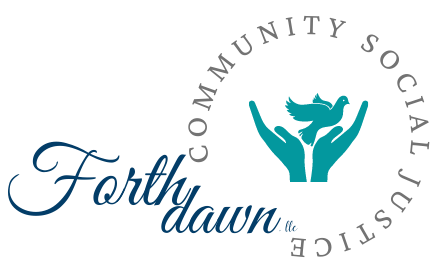Changing The Way We Dialogue About Justice Reform
Richard Brouillette’s article, Dehumanization is Causing a Global Mental Health Crisis,[2] discusses the correlation between dehumanization and mental health. Brouilette states: “To feel dehumanized is to feel treated as an object, as a thing, with no self-direction, sense of justice, or will — to feel part of a situation over which you have no control.”
Individuals who are incarcerated, under community supervision or transitioning (reentry) back into the community often have that feeling of helplessness and dehumanization. That hopeless mentality is only perpetuated further by the common language used to refer to them or their past. There is a severe mental health crisis within the justice system, and I believe that we can start making a difference by simply changing the dialogue around it.
For example, to have an “offender” or “inmate” reentry program, product or service pronounces a permanent state over the “clients,” “residents” or “participants.” A person is not an offender, which implies a permanent state; people commit offenses, which appropriately categorizes their decisions. Using those terms when assisting individuals in the rehabilitation process is more humanizing because every human can make decisions, good and bad.
I believe we all acknowledge that cultural changes do not happen overnight, and this movement needs to spread to make a significant difference. It is imperative to acknowledge, educate, and consciously practice with all community members about how to adopt this better use of dialogue. Especially when supporting the rehabilitation of an individual. I believe that together as a society, we can reduce the mental impact of the people seeking assistance during their journey by merely changing the way we speak about them.
It is important to me to recognize that several state justice agencies have already embraced the cultural changes by adding the word “rehabilitation” to the agency’s name. Those justice agencies are:
- California Department of Corrections & Rehabilitation (2004)
- North Dakota Department of Corrections and Rehabilitation (2009)
- Ohio Department of Rehabilitation and Corrections (2006)
- Puerto Rico Department of Corrections and Rehabilitation (2017)
- West Virginia Division of Corrections and Rehabilitation (2018)
In my opinion, the inclusion of the word rehabilitation in the justice agencies names signifies several things: (1) an outward demonstration to the general public that the agency’s charge is two-fold, (2) the responsibility of the agency is not only to make a “correction” or redirect misguided decisions, and (3) the responsibility of the agency is to provide public safety until correction, rehabilitation or habilitation has occurred to ensure the welfare and safety of the general public.
There are several organizations that have brought attention to this issue over the years, JustLeadershipUSA and The Fortune Society, just to name a few. However, the most legendary effort to raise awareness on language is An Open Letter to Our Friends on the Question of Language, by the late Edwin “Eddie” Ellis, founder and president of the Center for NuLeadership on Urban Solutions.
In this letter, Ellis stated: “The Center for NuLeadership on Urban Solutions believes that if we can get progressive publications, organizations and individuals like you to stop using the old offensive language and simply refer to us as “people,” we will have achieved a significant step forward in our life giving struggle to be recognized as the human beings we are.”
As the leader of The Securus Foundation, I have decided that we will accept Ellis’ charge and not only outwardly support the use of humanizing language. We are launching the “Language Matters” campaign on Jan. 1, 2020. The campaign will identify mainstream publications and/or social media posts that use dehumanizing language to refer to justice-involved individuals, we will rewrite the publication and/or post, replacing dehumanizing language with humanizing language and then we share this better way to dialogue on social media.
In preparation for this campaign, we are looking at public perception, from both the impacted and non-impacted communities, and examining how people describe incarcerated, supervised and formerly incarcerated individuals. As a collective, we need to make a concerted effort to understand what is the best dialogue to use at each stage that demonstrates habilitation and rehabilitation. As Ellis said, “We firmly believe that if we cannot persuade you to refer to us, and think of us, as people, then all our other efforts at reform and change are seriously comprised.”

